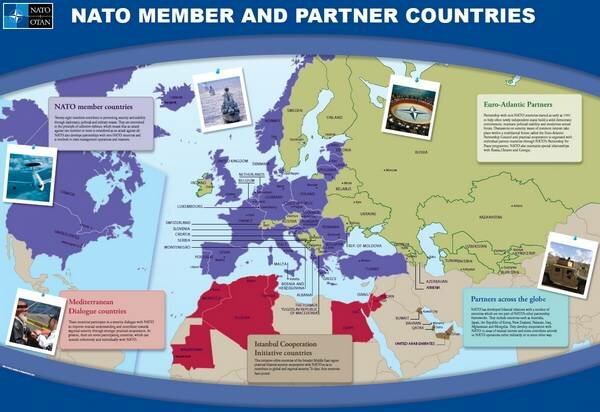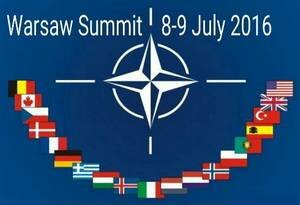
Yuriy Radkovets
July 8-9, 2016, Warsaw will host the next NATO Summit, the main agenda of which will determine the policy of the North Atlantic Alliance in Eastern Europe, mainly in the direction of strengthening the security of allied countries in connection with the Russian Federation's ongoing aggression against Ukraine. This event is of special relevance in terms of sharpening problems in the EU as a result of the forthcoming UK withdrawal from the Organization, which takes place against the background of Russia's increasing military threats to Europe.
It is important to realize that decisions made during the Summit, and the provisions laid down in the final document will be decisive for NATO for at least the next two years.
Undoubtedly, issues of strengthening cooperation between NATO and the European Union in the context of increasing number and growth of provocative challenges and threats to global security will be the main topic within the framework of all the discussion panels.
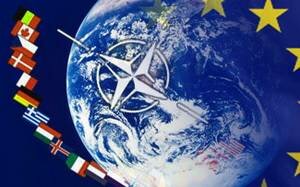 Today, relations between NATO and the EU are closer and more united than they have ever been. This is explained by the fact that both organizations profess the same values of democracy, freedom, respect for human rights and the rule of law, principles of international law. At the same time, 22 countries-members of the European Union are – and this is important, – the members of the North Atlantic Alliance.
Today, relations between NATO and the EU are closer and more united than they have ever been. This is explained by the fact that both organizations profess the same values of democracy, freedom, respect for human rights and the rule of law, principles of international law. At the same time, 22 countries-members of the European Union are – and this is important, – the members of the North Atlantic Alliance.
The present situation in Europe, as well as within the entire Euro-Atlantic space, is very complicated, even in comparison with the period of the “Cold War.” This is due primarily to the fact that near the borders of NATO and EU member countries, there are new challenges to the security, which for the long term represent a direct threat to the national security system of each individual country and in the whole of their coalition security system.
This situation has emerged due to: more than two years of the Russian Federation's cynical military aggression against Ukraine; a war in Syria continuing for 6 years already; extreme aggravation of factors of instability and extremism in North Africa and the Middle East; activation of the “Islamic State” terrorist organization (IS), as well as the new migration crisis in Europe as a result of this.
In this situation the North Atlantic Alliance is making significant efforts to prevent the direct causes of the above-mentioned challenges and threats. For example, through the participation of all NATO member countries in the global coalition against the IS terrorist organization to counter its extremist ideology and practice, as well as in close cooperation with the European Union by means of sending a second permanent NATO naval group to patrol and monitor the Aegean Sea in order to struggle against illegal migration.
Despite the fact that NATO is a global military-political organization, its success depends on the ability of the armed forces of all member states to act together, remembering, however, that it is impossible to solve all issues by external forces. To this end, countries need strong local (national) security and defence forces capable to defend their country against terrorism and riots, while ensuring security, freedom and rights of its own peoples.
In this regard, we should not forget also about such already existing initiatives as the “Mediterranean Dialogue”, “Istanbul Cooperation Initiative”, and the based on the results of the Summit in Wales (September 4-5, 2014) ambitious initiative to increase defence capabilities of the partner countries “Defence Capacity Building”.
In this context, the Warsaw Summit can be an excellent platform for presentation of new initiatives, including with the participation of Ukraine in order to confirm NATO's efforts to have strategic influence in the region and security in the Euro-Atlantic space. There is also reason to count on the fact that during the next Summit in Warsaw the leaders of NATO member countries will agree on how to strengthen the above-mentioned support programs, and the leaders of the European Union member states will undertake appropriate commitments in the context of their implementation.
As we know, the allies of the Alliance have already agreed to stop the practice of reducing the cost of national (and hence the coalition!) defence, and also – today they are putting practical content into the Plan of NATO combat readiness.
That is, it should be expected that the Warsaw Summit will discuss proposals to strengthen the coalition (collective) NATO defence for the long term, including due to the transition from the implementation of measures aimed at guaranteeing security, to the “policy of containment of Russia”.
Thus, according to one of the latest statements of the Commander of the US Army in Europe, Lieutenant-General Ben Hodges: “... NATO will give up the “strategy of securing” its allies in Europe in favor of a “strategy of deterring” Russia. For us, priority №1 – is being able to stop (Russia's) further aggression”.
The key point in this regard should be the decision on strengthening the Alliance's capabilities with respect to Rapid Deployment Forces (on a rotating basis) with advanced presence of Allied troops on the territory of Eastern European NATO member countries. This will be possible thanks to the decision taken by the United States on a significant increase of funding support for the so-called “European Reassurance Initiative”, which has actually been working since 2014 and is aimed at providing assistance to the European military, concerned with Moscow's actions.
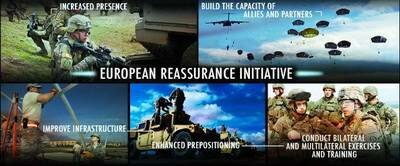
We should also expect that the aforementioned measures to strengthen and build up the capacity of NATO on the eastern (and also on the southern!) direction will be laid down in the so-called “Warsaw Pact”, the basic principles of which will be balance and adaptation.
The balance should be understood as the balance between the policy of deterrence and the military-political course aimed at dialogue with partners (mainly from the EU).
Adaptation will mean bringing in new realities into NATO activity in the security sphere, minimizing potential threats and challenges to the Alliance related to Russia's aggressive foreign policy, as well as a significant strengthening of NATO's eastern borders.
In turn, the eastern NATO allies have been calling not only to use the policy of deterring, but also to neutralize the aggressive actions of the Russian Federation and thus they insist on returning the tight military collective defence strategy.
In this context, during the Summit in Warsaw, it may be decided to strengthen the presence of the NATO allied forces in Eastern Europe through the expansion and consolidation of Forward-Based Forces in the East.
In case if NATO forces are deployed in the East, there can be a new deterrence line that will pass through countries such as Estonia, Latvia, Lithuania, Poland, Slovakia, Hungary, Romania and Bulgaria.
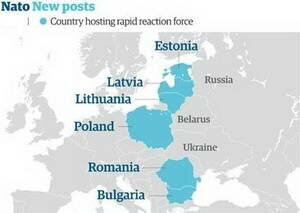 To date, six of the eight divisions of the integration command subdivisions of NATO forces – forward deployment headquarters for command and control of joint actions of the allied and national forces – actually work. Slovakia and Hungary are also preparing for the deployment of such headquarters in the territory of their countries.
To date, six of the eight divisions of the integration command subdivisions of NATO forces – forward deployment headquarters for command and control of joint actions of the allied and national forces – actually work. Slovakia and Hungary are also preparing for the deployment of such headquarters in the territory of their countries.
Warsaw Summit may also decide on the deployment (on a rotating basis) of one combat battalion of NATO (numbering 500-1000 people) in each of the above-mentioned countries.
So, most likely, the Alliance will not deploy bulky groups on a permanent basis, but will create room for maneuver and moving quickly and deploying the necessary forces in a pre-equipped places with already prepared control stations, logistics, warehouses and so on.
For Ukraine, this state of affairs would mean that it would be at the forefront of the eastern borders of the EU and NATO, that is, organizations that do not yet offer the distinct prospect of Ukraine's membership in them, but which will strongly support it with non-lethal (defence) weapons, supplies of minition and equipment, participation in the reform of the Armed Forces of Ukraine, training the Ukrainian military, their rehabilitation after the ATO zone and so on.
At the same time, in today's geopolitical realities, the countries of the Alliance may formulate a consolidated position with regard to Russia's military aggression on the sovereign territory of Ukraine.
Russia's aggression against Ukraine has once again showed the whole world that the territorial integrity of any European country could be in jeopardy. By its actions in Moldova, Georgia and the occupation of the Autonomous Republic of the Crimea and military destabilization of the situation in some districts of Donetsk and Luhansk regions of Ukraine, the Russian Federation demonstrates the member countries of the Alliance its reluctance to be an integral part of the Euro-Atlantic community, striving to restore its sphere of influence and readiness to change internationally recognized boundaries even through the use of military force.
It is possible that in response to such behavior of the Russian Federation, NATO will continue the transformation of its policies and will make the greatest in scale since the times of the “Cold War” strengthening of collective security, which will find its reflection and implementation in the results of the Warsaw Summit.
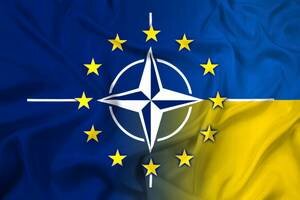 Most likely, the real prospect of Ukraine's membership in NATO will not be discussed at the Warsaw Summit, as:
Most likely, the real prospect of Ukraine's membership in NATO will not be discussed at the Warsaw Summit, as:
Firstly, this issue today has not been raised at the highest level during the meetings in the NATO-Ukraine format;
Secondly, Ukraine does not officially apply for NATO membership. The National Security Strategy and the Military Doctrine of Ukraine have determined “... the long-term goal of joining the European security system, which is based on NATO”;
Thirdly, some NATO member states believe that the accession of the countries neighboring Russia may create a real threat of the Alliance's using of Article 5 of the North Atlantic Treaty (on the armed attack), given their years of continuing conflicts with the Russian Federation (Georgia, Moldova, Ukraine).
One of the decisions taken within the framework of the NATO Summit in Warsaw will be creation of new instruments of the Alliance to respond to manifestations of “hybrid war”. In this context, it is possible that after the finalization of this issue, in Kyiv will be opened the NATO Centre for studying the experience and countering the “hybrid war”.
In any case, by the results of the Warsaw Summit, NATO's political and practical support for Ukraine and counteracting the Russian Federation's growing aggression will be in the Final Warsaw Declaration.
In Warsaw, NATO will also once again declare its respect for Ukraine's European and democratic choice, will confirm its continuing commitment to support its sovereignty and independence, territorial integrity and inviolability of its internationally recognized borders. Besides, the Alliance will emphasize the need for a peaceful and diplomatic resolution of the Russian-Ukrainian conflict in certain districts of Donetsk and Luhansk regions of Ukraine, stressing at the same time the full and immediate implementation of the Minsk Agreements by both parties.
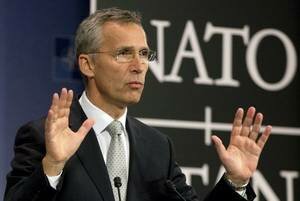 It is obvious and clear that the Alliance does not want direct military conflict with Russia, so it is important for NATO that Ukraine holds back Russian aggression, and prevents its spread and intervention further to the West.
It is obvious and clear that the Alliance does not want direct military conflict with Russia, so it is important for NATO that Ukraine holds back Russian aggression, and prevents its spread and intervention further to the West.
We should also be prepared for the fact that the leadership of the Alliance in the context of the discussion of the Ukrainian issue will decide on the need for implementation of comprehensive democratic reforms, including in the security and defence sector, in matters of stabilizing the political situation, and getting rid of corruption.
At the same time they will speak about Ukraine's implementation of NATO standards, modernization of command and control systems, expansion of trust funds, through creation of new – demining – and improving the existing ones. Separately, may be touched upon the issues of cyber security, medical care for Ukrainian soldiers and their rehabilitation, development of the system of military education and logistics, but not supply of lethal weapons.
Quite expectedly, the focus may be on strategic initiatives associated with Ukraine's active participation in the project of creation of the Ukrainian-Polish-Lithuanian military brigade in order to increase the level of mutual trust and cooperation, to improve the security situation in the region and its joining the Black Sea fleet under the aegis of NATO, to support the idea of a Ukrainian-Romanian-Bulgarian military brigade – this will not just bring Ukraine closer to the partnership with the countries of the Alliance, but will also radically change the nature and intensity of cooperation with them.
As a result – the Alliance will confirm the decision of the Bucharest NATO Summit (2-4 April 2008) on the policy of “open doors” for Ukraine as a promising goal of bilateral strategic military and political partnership.

Thus, according to experts of the Independent Analytical Center for Geopolitical Studies “Borysfen Intel”, in the situation of the potential growth of real military threat from the Russian Federation, the next Summit of the Alliance (Warsaw, 8-9 July 2016) in fact will play a key (strategic) role in insuring security both on the European continent, and in Ukraine for at least the next two years.


